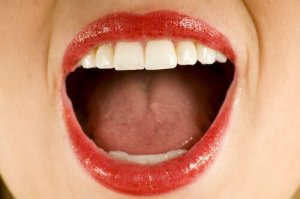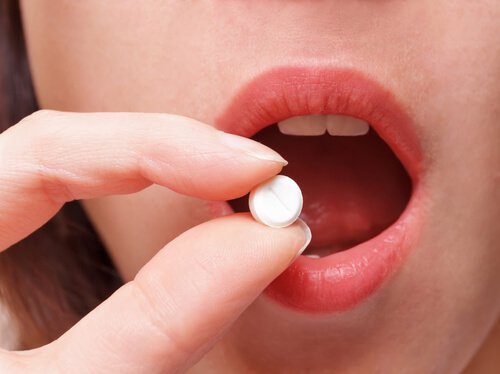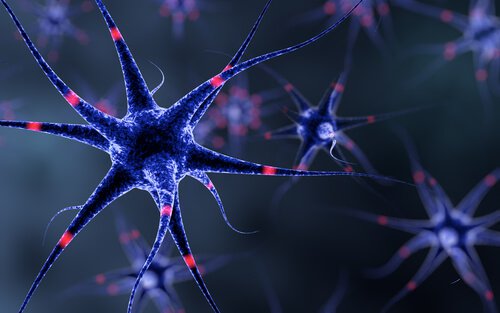Find Out What Causes a Metallic Taste in Your Mouth


Written and verified by the doctor Nelton Abdon Ramos Rojas
Having a metallic taste in your mouth is more common than you might think, and it can indicate various health problems.
The condition can be temporary, or it could vary from mild to serious, depending on the cause.
A metallic taste in your mouth may develop for various reasons and can lead to a total loss of appetite. Speaking may even become a problem.
Main causes of a metallic taste in your mouth
Certain medications

When starting a medical treatment, a metallic taste may appear in your mouth. If this is the case, you can see a specialist and ask to change to something that won’t have side effects.
Among the medications that can cause this effect are:
- Antibiotics
- Antidepressants
- Medicines used for kidney stones
- Some compounds used to balance the calcium
- Treatments for hypertension
We recommend: 5 Things that you should remember if you take antidepressants
Poor oral and dental health
Dental hygiene can also be one of the causes of this problem.
In addition, an excess of plaque can cause gingivitis. This is an infection that destroys the tissues that support the teeth.
Good dental hygiene is fundamental to protect you and eliminate the annoying metallic taste in your mouth.
Pregnancy

In the first months of pregnancy, many women experience a metallic taste in their mouths.
This is the result of changes in hormones in the body, especially in the first trimester. Later, this condition disappears.
Allergies and infections
Some allergies and fungal infections in the mouth and on the tongue can affect the taste buds and change the taste in the mouth.
Allergies are also related to this. Mucous as well as nasal congestion can cause this problem.
Nervous system problems

An imbalance in the region of the brain that controls the sense of taste can cause this type of alteration.
High levels of minerals
The metallic taste can be due to an excess of minerals (like iron or copper) in the body.
A deficiency or excess of zinc can also provoke a metallic taste. It’s a good idea to have an exam to determine the levels of these minerals in your blood.
Toxic agents

The inhalation of toxic elements like benzene, cobalt, and varnishes or exposure to mercury or led can cause this taste if high levels have been inhaled.
Other causes of a metallic taste include:
- Food poisoning, particularly fish and seafood.
- Vitamin and mineral deficiencies.
Also see: How do I know if I lack vitamins?
Recommendations to improve the problem
Salt water mouth washes
Thanks to the anti-inflammatory properties of salt, this remedy works very well to treat your gums and kill mouth bacteria that causes a metallic taste. It also helps to:
- Eliminate remains of food in the teeth after eating.
- Soothe the throat and open up the congested nasal passage.
Citrus fruits
Consuming citrus fruit stimulates the secretion of saliva and helps to minimize the metallic taste. For this, you can eat oranges, lemons, grapefruit, etc.
Maintaining good oral hygiene
Brushing the teeth and tongue 2 or 3 times a day is recommended. Also, gargling is a good idea to eliminate microorganisms completely.
You can use a small amount of baking soda and salt on your toothbrush to get rid of all the germs.
Hydrate sufficiently
Drink 7 to 8 glasses of water a day to help the body stay hydrated and clean. As a result, this will prevent dryness of the mouth.
Lozenges and candy
Certain flavors of lozenges and candy such as mint, eucalyptus or licorice can mask the metal taste and help to hydrate your mouth.
Likewise, chewing on a piece of cardamon or clove in the middle of the day helps to refresh the mouth and have fresh breath.
If the problem doesn’t improve after a few days, you should consult a doctor, who can check to see if there is a pathogen causing this issue.
Don’t forget that the remedy or the treatment can vary depending on the cause of the problem.
All cited sources were thoroughly reviewed by our team to ensure their quality, reliability, currency, and validity. The bibliography of this article was considered reliable and of academic or scientific accuracy.
- Lawless, H. T., Schlake, S., Smythe, J., Lim, J., Yang, H., Chapman, K., & Bolton, B. (2004). Metallic taste and retronasal smell. Chemical Senses. https://doi.org/10.1093/chemse/bjh003
- Davies, S. J. C., Underhill, H. C., Abdel-Karim, A., Christmas, D. M., Bolea-Alamanac, B. M., Potokar, J., … Prime, S. S. (2016). Individual oral symptoms in burning mouth syndrome may be associated differentially with depression and anxiety. Acta Odontologica Scandinavica. https://doi.org/10.3109/00016357.2015.1100324
- IJpma, I., Renken, R. J., ter Horst, G. J., & Reyners, A. K. L. (2015). Metallic taste in cancer patients treated with chemotherapy. Cancer Treatment Reviews. https://doi.org/10.1016/j.ctrv.2014.11.006
This text is provided for informational purposes only and does not replace consultation with a professional. If in doubt, consult your specialist.








